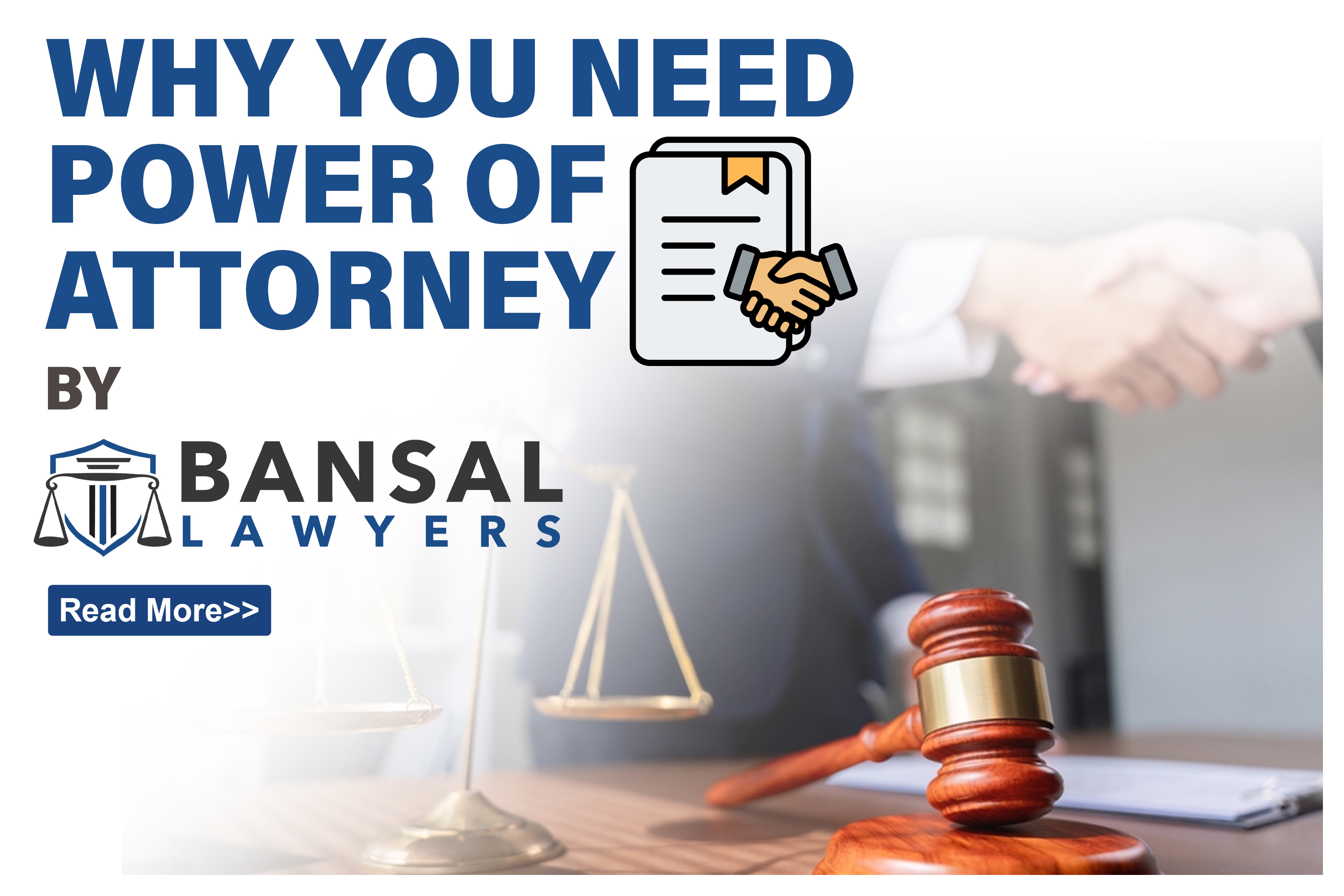Divorce Lawyers in Melbourne Australia – Complete Guide for Couple
Jan 31, 2026

Planning for the future is crucial, and one of the most important steps you can take is ensuring that your personal, financial, and healthcare decisions are in trusted hands. That is where a Power of Attorney (POA) comes in a legal document that allows you to appoint someone (your Attorney) to make decisions on your behalf, should you become unable to do so.
At Bansal Lawyers, we simplify the process to give you peace of mind, ensuring that your legal needs are handled with expertise and care.
A Power of Attorney gives someone the authority to manage your affairs in situations where you cannot. You decide who your Attorney is and what decisions they can make—whether for healthcare, finances, or personal matters.
A General Power of Attorney allows you to appoint someone to make financial and legal decisions on your behalf. It is best suited for short-term or temporary situations when you're:
Travelling overseas
Recovering from an illness or surgery
Temporarily unable to manage your affairs
This type of POA gives your appointed person full authority to act on your behalf in matters such as banking, paying bills, selling property, or signing legal documents.
An Enduring Power of Attorney (EPOA) is designed for long-term planning and offers more security than a General POA. What makes it different is that it:
Remains legally valid even if you lose mental capacity
Can be used to manage both financial and personal matters (depending on your state laws)
This type of POA is commonly chosen by people who want to prepare for the possibility of future health issues, such as dementia or serious medical conditions. Your chosen Attorney can make decisions about:
Managing your money, property, or business
Handling your bills, investments, and assets
Making arrangements for your care and living situation (if authorised)
A Supportive Power of Attorney is a more collaborative legal tool designed to empower people with cognitive disabilities or impairments. Instead of giving someone else full decision-making power, this POA allows the appointed person (called a supporter) to help the principal make their own decisions.
The supporter can assist by:
Accessing and explaining information to the person
Helping communicate decisions to others
Assisting with understanding options or consequences
Unlike other types of POA, the principal remains in control and continues making their own decisions — the supporter’s role is to provide help without overriding their autonomy.
Without a Power of Attorney, decisions about your health, finances, and personal life may fall to others who don’t know your wishes. By setting up a POA, you ensure your trusted Attorney will step in when needed. It’s your way of securing control over your future.
Your Attorney can make decisions about:
You can even appoint multiple Attorneys and specify how they make decisions (together or separately).
Attorneys must act in your best interests—making decisions based on your preferences and ensuring that they avoid conflicts of interest. They’re legally bound to manage your affairs responsibly and with transparency.
Choose someone trustworthy, responsible, and willing to act on your behalf when needed. Think about their reliability, availability, and capacity for making important decisions.
Setting up a POA involves:
A Power of Attorney helps protect your interests, ensuring that your affairs are managed just the way you would. It’s simple, but incredibly important. At Bansal Lawyers, we make the process straightforward and hassle-free.
Don’t leave your future to chance—contact Bansal Lawyers, the best lawyers in the field, to set up a Power of Attorney and ensure that your decisions are always in trusted hands.
Last updated: Jul 23, 2025